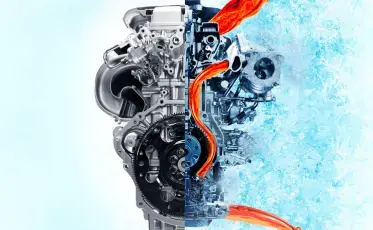Long drives and intense heat may lead to higher oil consumption, evaporation of internal battery fluid, change in tire pressure. Below, you can find advice and suggestions for protecting your car from summer heat. We wish you a comfortable and safe drive!
1. Interior protection
Exposing your car to intense sunlight can lead to cracks in the dashboard, plastic deformation, and damage to sit covers. Make sure to use protective curtains and sunshades for the windows. When your car is parked for longer period, consider using aluminum foil.
2. Air conditioning
Ensure that your air conditioning filters are clean. Keep in mind that using the air conditioning is more efficient than opening the windows.
3. Body car protection
Protect your car’s body from the sun by applying wax. If you are not in situation to do this at a service center, you can do it yourself. After washing and thoroughly drying the body, apply a special wax section by section using a cloth.
4. Oil level
Frequent driving in hot weather may require more frequent oil changes. Check the oil level, especially if you have a longer journey ahead.
5. Tire pressure
As the temperature rises, so does the tire pressure. Regularly check the tire pressure, especially if the external temperature suddenly increases.
6. Radiator
When the engine is cold, check if the radiator is clean.
7. Wipers
Check if the winter has left significant damage to the wiper blades, such as cracked rubber. Wiper blades should wipe the entire surface to provide better visibility during unexpected summer thunderstorms.

8. Battery check
Summer heat can accelerate chemical reactions within your battery. Extremely high temperatures can cause the battery fluid to evaporate. Additionally, we recommend cleaning the battery terminals by pouring a little cold water over them.
9. Coolant
Check whether your car’s cooling system is functioning properly and if the coolant levels are sufficient.The recommended interval for changing the coolant is between 2 to 5 years, in case you don’t add coolant periodically.
10. Road works
Summer is typically the season for roadworks. Make sure you respect the prescribed speed limits and maintain a safe distance from the vehicle in front of you to allow enough time for reaction if you run into obstacles on the road.

TotalEnergies Service Network

Contact us

Traveling abroad by car
